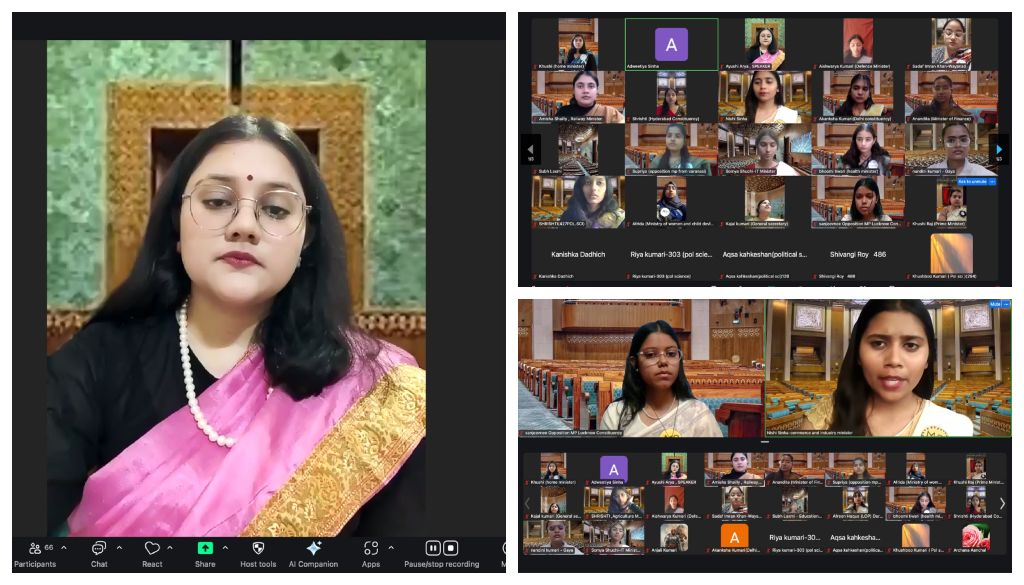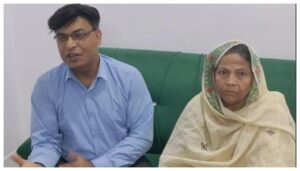
Patna: To commemorate the 135th birth anniversary of Dr B.R. Ambedkar, Patna Women’s College hosted a virtual Mock Parliament on Monday, offering students a dynamic and immersive experience in democratic practice. Organised by the Department of Political Science in collaboration with the college’s Jagriti: Constitutional Values and Ethics Club, the event brought together undergraduate students to simulate the inner workings of India’s parliamentary system.
Held on Zoom at 12 noon, the programme saw participation from BA Semester II students, who took on roles including Speaker, Prime Minister, Leader of the Opposition, Cabinet Ministers and Members of Parliament. The mock session aimed to promote civic literacy and develop a deeper understanding of constitutional principles, parliamentary procedure, and public discourse.
Participants began by taking a symbolic oath of office in a variety of Indian languages—Hindi, English, Urdu, Sanskrit and Bengali—underscoring the nation’s linguistic diversity. This was followed by spirited debates on pressing national issues such as inflation, unemployment, rising petroleum prices and national security challenges.
A significant portion of the session focused on deliberations surrounding the proposed Digital Data Protection Bill, with students exploring its implications for the fundamental right to privacy. After multiple readings and rigorous discussion, the bill was passed—marking a high point in the simulated proceedings.
“Mock Parliaments are not just academic exercises. They shape informed citizens and nurture critical skills like debate, leadership and public speaking,” said Dr Vineeta Priyadarshi, Head of the Department of Political Science, who presided over the programme.
The event was planned and coordinated by Assistant Professor Mr Adweetiya Sinha, and attended by faculty members Ms Fiza Darakshan, Ms Simran Sinha, Ms Prachi Raj and Ms Akanksha Rawet.
Through this initiative, the department reinforced Dr Ambedkar’s enduring message of democratic engagement and constitutional responsibility—reminding students that citizenship is as much about participation as it is about rights.





